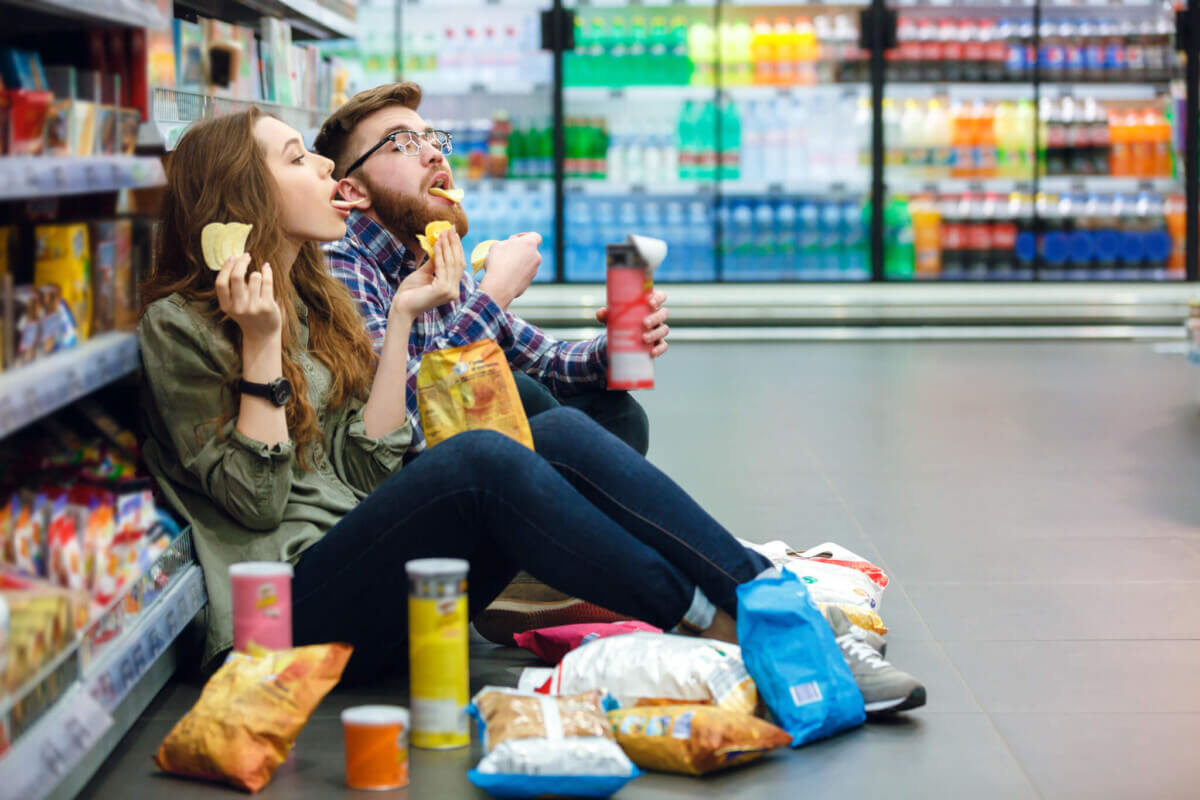
(© Drobot Dean - stock.adobe.com)
COLUMBUS, Ohio — A concerning new study reveals American adults are adding an “extra” meal to their plates every day — simply by snacking too much. Researchers from The Ohio State University analyzed data from over 20,000 individuals and discovered that Americans consume between 400 and 500 calories from snacks daily, often surpassing the caloric intake of breakfast and lacking nutritional value.
“The magnitude of the impact isn’t realized until you actually look at it,” says study senior author Christopher Taylor, a professor of medical dietetics in the School of Health and Rehabilitation Sciences at Ohio State, in a university release. “Snacks are contributing a meal’s worth of intake to what we eat without it actually being a meal. You know what dinner is going to be: a protein, a side dish or two. But if you eat a meal of what you eat for snacks, it becomes a completely different scenario of, generally, carbohydrates, sugars, not much protein, not much fruit, not a vegetable. So it’s not a fully well-rounded meal.”
The study utilized data from the National Health and Nutrition Examination Survey, which collects detailed 24-hour dietary recalls. It categorized participants based on their HbA1c level, an indicator of glucose control, into groups such as nondiabetes, prediabetes, controlled diabetes, and poorly controlled diabetes. Findings showed that snacks accounted for 19.5 to 22.4 percent of total energy intake, primarily consisting of convenience foods, sweets, and sugary beverages.
An interesting observation was that individuals controlling their Type 2 diabetes tended to snack less and consume fewer sugary foods compared to those without diabetes or with prediabetes.
“Diabetes education looks like it’s working, but we might need to bump education back to people who are at risk for diabetes and even to people with normal blood glucose levels to start improving dietary behaviors before people develop chronic disease,” notes Taylor.

Taylor emphasized the importance of considering the overall dietary pattern rather than focusing solely on reducing sugar and carbohydrates. He pointed out that removing certain food items must be balanced with healthier substitutions, ensuring a well-rounded diet.
The study's findings suggest a need for a shift in how snacks are perceived and consumed, moving towards healthier snacking patterns and planning snacks as part of a balanced daily diet.
“We need to go from just less added sugar to healthier snacking patterns,” says Taylor. “We’ve gotten to a point of demonizing individual foods, but we have to look at the total picture. Removing added sugars won’t automatically make the vitamin C, vitamin D, phosphorus and iron better. And if we take out refined grains, we lose nutrients that come with fortification.”
Taylor advocated for planning snacks with the same consideration given to meals like lunch and dinner, especially during holidays and other occasions where unhealthy snacking options are readily available.
“Especially during the holidays, it’s all about the environment and what you have available, and planning accordingly. And it’s about shopping behavior: What do we have in the home?” concludes Taylor. “We think about what we’re going to pack for lunch and cook for dinner. But we don’t plan that way for our snacks. So then you’re at the mercy of what’s available in your environment.”
The study is published in the journal PLOS Global Public Health.











I am sure I eat a meal's worth of snacks. So what? I don't eat large meals and I try to snack on healthy foods, fruit, nuts, whole grains, etc. The overall quantity and quality of ones diet is what counts. There is nothing magical about getting all your nutrition packed into three discreet meals.
You a big fat momma!!!
Please include your height and weight.
BS. The average American consumes waaaaay more than 400-500 calories per meal. A breakfast McD Sausage biscuit with egg is 500 calories without the hash browns and whatever else. 400-500 calories is NOT an extra meal. It's a side order.
There is more that 400-500 calories in the picture of girl sitting in front of the lap top sucking on soda. I doubt the average snacker consumes only that much extra a day. I see plenty of them consuming an extra 1000 plus. Look at how much space at the supermarket is devotes to cookies, candies, chips, crackers, cereal and coca cola (stay away from the C's)
Even Carrots?
I'm 5′ 10″ and a few months ago I weighed 220. I'm down to 190 lbs. I stopped eating bread, pasta, ramen and potato chips (I miss them) I eat corn tortillas and corn based snack chips.
More obfuscation..... it's not nearly the extra snacking it's more like the quality of our food that we eat.
We consume high fructose corn syrup canola oil lots of GMO
I'd rather we eliminate Democrats.
Kirkland brand all natural peanut butter with zero added ingrediants put on celery sticks or on zero net carb tortillas. Yum.
Not to mention beer, wine and liquor.